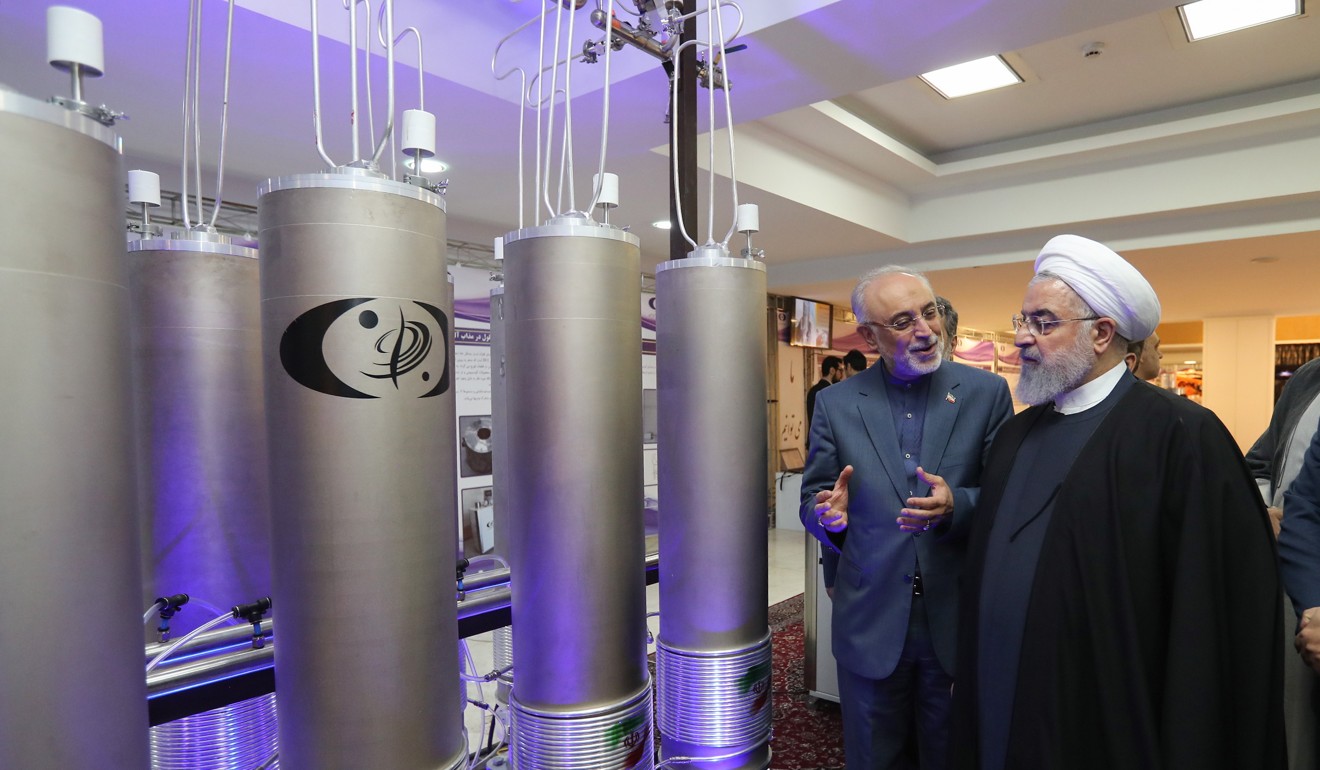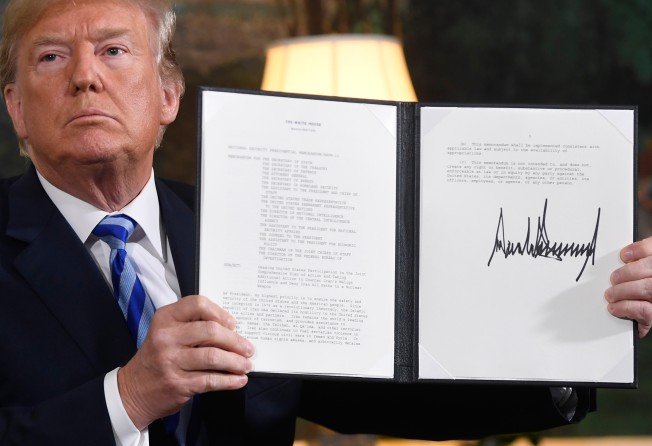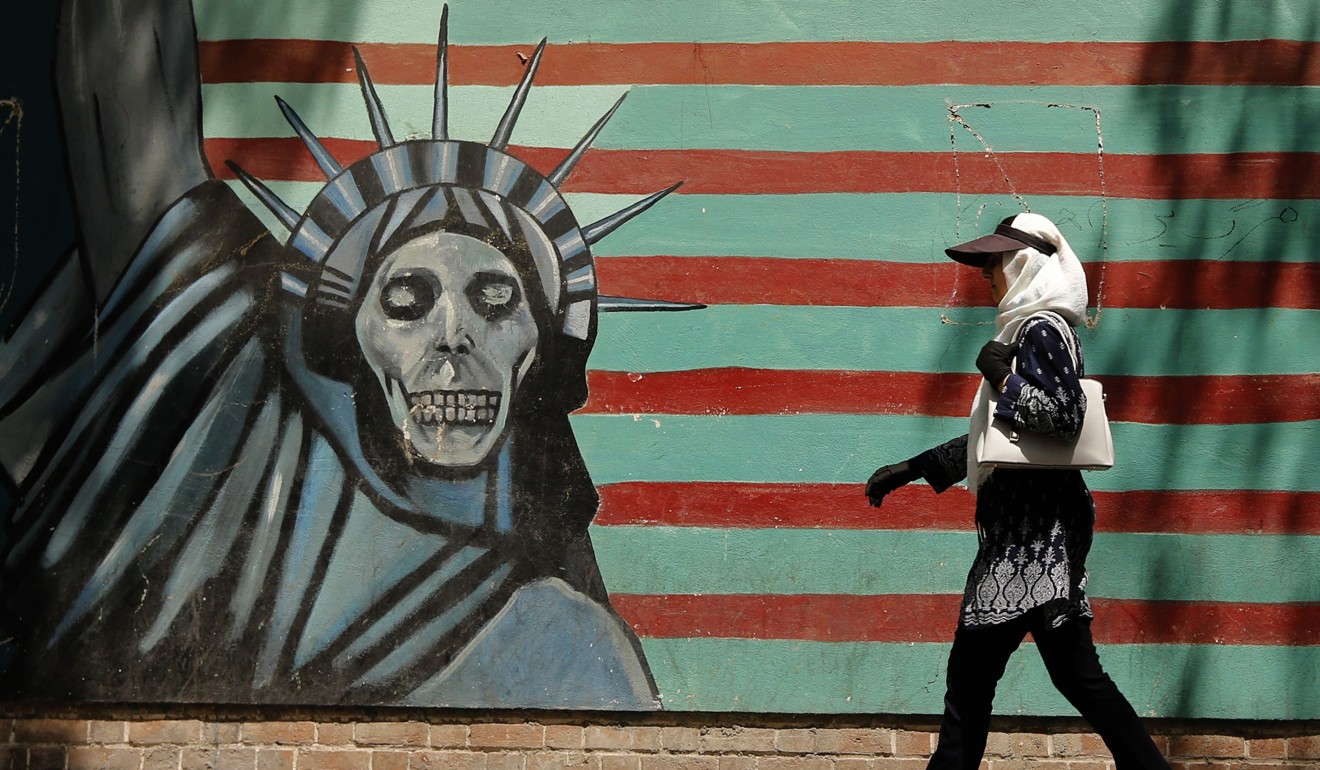
The Trump administration’s demonisation of Iran benefits Saudi Arabia and Israel more than the US
- The US’ escalating rhetoric and moves against Iran have raised fears of American military action. However, the main beneficiaries of a weakened Iran are its adversaries in the region

Not content with stoking a trade war with China and skirmishes with other partners, US President Donald Trump seems in the mood to threaten real war, this time with Iran.
Are the recent reports of tanker sabotage in the Persian Gulf to become another Gulf of Tonkin incident, the contrived crisis which enlarged the Vietnam war by persuading Congress to enable US president Lyndon B. Johnson to “take all necessary measures to repel any armed attack against the forces of the United States and to prevent further aggression”?
It is hard to know where Trump’s tweets and bombast will lead. His better instincts have been for quiet disengagement from the Afghan and Syrian conflicts. But his National Security Adviser John Bolton has no such inhibitions and seems to relish the prospect of one more try at “regime change” to reverse what have now been 40 years of failure of US policy towards Iran and which now make it necessary to present that country, weakened by years of sanctions, as a real and present threat to the US and its allies.
Actually, most of those allies – Germany, the UK, Japan – are more afraid of US sabre-rattling than they are of Iran, which is far from having nuclear weapons. It is targeted even though no fuss is made about the actual nuclear capability of three near neighbours, Pakistan, Israel and Russia.

As for US rivals Russia and China, they worry that things could get out of hand while being amused at the way Trump continues to unpick the alliances so patiently made over decades. Washington still has not got over the humiliations of the 1979 populist overthrow of their authoritarian Shah, installed by a CIA-backed coup in 1953, by the revolution which eventually brought clerics to power. That was followed by a humiliating failure to rescue US diplomats held hostage in their Tehran embassy.
However unpleasant their own regime, Iranians resented the US and other Western states cheering on Saddam Hussein’s 1980 invasion of their country, a war which cost upwards of 100,000 Iranian lives and consolidated the power of the clerics and Revolutionary Guard. No wonder it hankered after nuclear capability while neighbours had it already.
The US presents Iran as an aggressor state yet its involvement in Iraq, where it is doing more than the US and its allies to suppress Islamic State, was at Baghdad’s invitation. It meddles in Syria but so did the West, Turkey, Israel and Saudi Arabia in their failed attempt at regime change there. Tehran has been more help than hindrance in the fight against the Taliban in Afghanistan.

Back in 2003, US president George W. Bush was deaf to efforts by reformist Iranian president Mohammad Khatami to start a new chapter in relations, including a non-nuclear Iran. One result: the election of an extremist, Mahmoud Ahmedinejad, a man with a Trumpian capacity for insults. He was followed by another would-be reformer, current Iranian President Hassan Rowhani, who spent huge political capital negotiating a nuclear accord and sanctions relief with the Obama administration and other Western countries.
This document was then abandoned by Trump and sanctions imposed despite others agreeing that Iran had kept its side of the bargain. Now, the Trump administration seems keen on war should Iran also abandon the agreement which the US itself denounced. The demonisation of Iran continues, seldom questioned by a media with scant memory or reference to wider US interests.
And who are the main beneficiaries of this policy? The first is Saudi Arabia, the oil-rich but otherwise medieval kingdom, which continues to use its money and control of Mecca to spread a simplistic, extremist version of Islam to the world, doctrines at the root of al-Qaeda, the Taliban, Islamic State and linked movements across the Muslim world.
As for domestic conditions, Islamic Iran is a shining light of debate, democracy, women’s rights and artistic development compared with Saudi Arabia, a state with a large oppressed Shia minority and held together only by oil money. Nor does Iran have a recent record of atrocities compared with the Saudi bombing of Yemen.
The second main beneficiary is Israel, led by Prime Minister Benjamin Netenyahu, using a non-existent real threat to incite Washington and appeal to a president more concerned with pleasing his fundamentalist Christian followers than a more discerning Jewish community. Iran is useful cover for Netanyahu’s aim of permanent occupation of the Palestinian territories and the ever more racist laws and actions by which Israel treats its 21 per cent Arab citizens, not to mention 4.8 million in the occupied territories.
Given that Palestinians have at least as good a claim to being Semitic inhabitants of the region for millennia as Jewish settlers of the past 100 years, Israel should look in the mirror.
Philip Bowring is a Hong Kong-based journalist and commentator